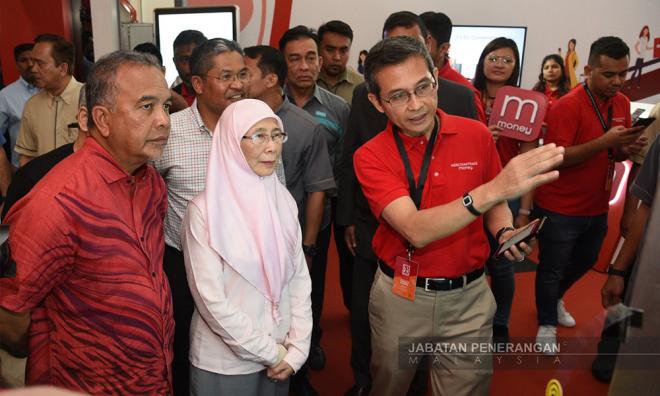
Malaysia’s economy expanded by 4.6 percent as of September this year, and the growth was achieved without a sudden increase in the prices of goods and services, said Deputy Prime Minister Dr Wan Azizah Wan Ismail.
"This is important to ensure the people’s purchasing power is not affected in expanding the country’s economy," she said at the launch of the Putrajaya Literacy in Financial Technology Festival, today.
Wan Azizah said up to October, the inflation rate was low with the consumer price index (CPI) rising by 1.1 percent compared with October last year.
"For the first 10 months of this year, average inflation was only at 0.6 percent compared with the same period in 2018.
"This compared with 1.0 per cent for the first 10 months of 2018 against the same period in 2017," she said.
For the record, the CPI for the January-October 2017 period registered an increase of 4.0 percent compared with the same period in 2016.
Wan Azizah said this was a manifestation of the government's capability to manage and administer the economy successfully.
She described this year as challenging for the world economy such that the International Monetary Fund in its World Economic Outlook report had several times since January revised its projection for the global economic growth to a lower rate.
"Malaysia is not spared from (getting) the impact of the global economic slowdown, coupled with the allocation that needed to be made to pay the interest on national debt such as 1MDB and those related to it," she said.
Wan Azizah said in the 2020 Budget tabled two months ago, the government had projected the nation’s economic growth at 4.7 percent for this year.
She said the government was also committed to implementing institutional reforms besides assisting in generating economic growth by maintaining Malaysia’s sovereign credit rating at A3 or A-. — Bernama



No comments:
Post a Comment
Note: Only a member of this blog may post a comment.